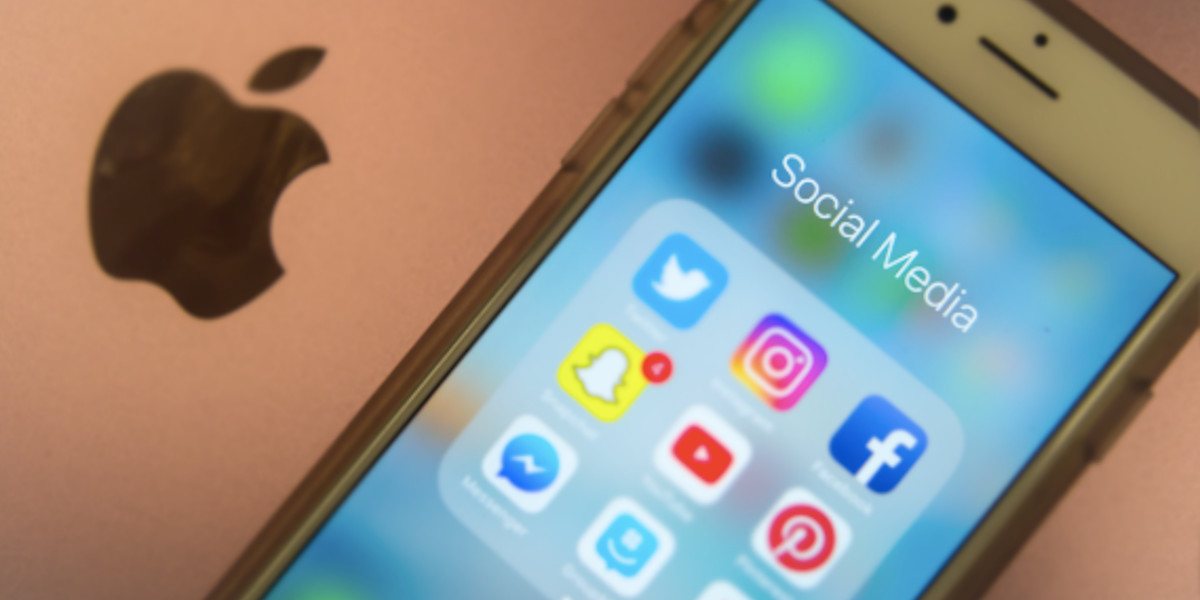Social media is the standard in today’s society in both business and personal communication. The technology created with great intention may bring more disadvantages than advantages. As young adults, we need to lead the charge of awareness as we become contributing members of society.
__________________________________________________
Social media is advertised as a connection between communities, but there are disadvantages to the technology that never forgets. At a young age, social media is a tool to brag to friends about weekend plans, edit our flaws through filters and reach as many people as possible, even if we compromise ourselves in the process. Social media convinces everyone they are famous in their own rights, and everyone needs to hear what their plans for the day are, but not everyone wants to know what you’re eating for dinner. Social media has outgrown its original intention, and has become dangerous for teens to post things without thinking or asking what is OK. Teenagers forget that posts never go away; the decision-making part of our brains isn’t developed until we are 21, and yet many years before that age we are handed devices that could alter our future. Too often teens don’ts realize a status update riddled with profanity, posted at a time of confusion, has the potential to eliminate them from consideration for a position, dream job, promotion, or even acceptance into the school of their dreams. Our digital footprint is taken into consideration in all aspects of life. Colleges have reported that social media can make a big difference in the admissions process. In 2013, admissions staff from Bowdoin College, a private university in Maine, talked of a high school senior who tweeted obscenities during her visit to the campus. In turn, her application was dismissed. Other social media platforms make empty promises to users. Snapchat promises temporary posts, but no one reads the fine print in their agreement that tells users all pictures taken in the app can disappear from a friend’s phone, but they will remain on Snapchat’s servers. Everything lasts forever, as opposed to our parents’ mistakes, which we will never know about because they didn’t have the opportunity to post it for the world to see. Social media has found its niche in advertising and public relations due its ability to reach many demographics. It’s a great tool to reach younger generations tied down by their cell phones, enabling them to find information through most news sources and broadcasted media. As a networking tool, social media serves its original purpose, to connect others and keep them in constant contact. In business today, it’s more important than ever to build relationships with every demographic. Through social media, people build bridges and create a community whose members may one day cross paths with them in a work environment. Though social media can be used as a tool in business, it can also demolish societal standards of communication. Terms such as “text talk” and “keyboard courage” generate habits in our speech. These terms define the grave dangers of social media. Keyboard courage talks about the human habit of waiting to hide behind a screen to say hurtful words instead of having self-control in a personal conversation. This habit causes problems physiologically for the typer and the reader. Text talk, on the other hand, is a term that defines the inability to differentiate between the language used in a face-to-face conversation and a texting conversation. Face-to-face communication is seldom the norm for younger generations, failing to prepare them for endeavors involving many types of interpersonal communication. Society requires communication skills in interviews, collaborative spaces and as a factor in most career paths, but too often younger generations are failing to realize the importance of strength in their communication. Social media can still serve its original purpose, but its flaws have a major effect on society.
